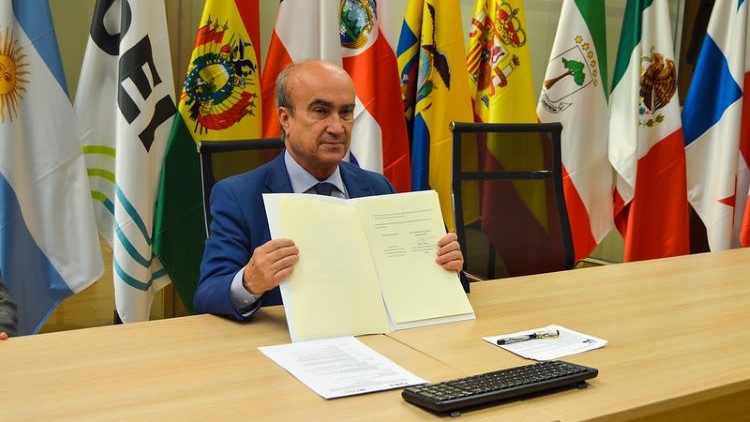The Diplomat
The Organization of Ibero-American States for Education, Science and Culture (OEI) and the United Nations Office for the Coordination of Development of Latin America and the Caribbean (OCD ALC) have signed a collaboration agreement to promote the achievement of the Goals of Sustainable Development (SDG) of the 2030 Agenda in Ibero-America.
The agreement was signed electronically last Monday, from Madrid and Panama City, by Mariano Jabonero, secretary general of the OEI, and Roberto Valent, director general of the Development Coordination Office for Latin America and the Caribbean.
The document provides for the launch of joint initiatives – such as publications, seminars and awareness campaigns – in areas of common interest, such as education, culture, science, technology, the energy transition, the digital transition, human rights, democracy and gender equality, as well as joint participation in the design and development of activities that promote circular, triangular, South-South and other modalities.
Likewise, sustainable development initiatives will be carried out that are aligned with the Cooperation Frameworks for Sustainable Development of the United Nations Country Teams, and with the document New Agenda for Ibero-American Cooperation-European Union: Strategic priorities for cooperation in Ibero-America, prepared by the OEI and which establishes the challenges that arise in the region in terms of education, innovation, culture and ecological transition. The agreement will also promote communication and dialogue at the political and technical level between the United Nations resident coordinators in Latin America and their offices with the directors and teams of the OEI national offices.
This agreement reinforces the joint work that the OEI has been developing with the United Nations in recent years. “We have a direct relationship with the United Nations system. We were recently in New York at the last General Assembly, and we have managed to have a close and fruitful working relationship with organizations such as UNESCO or the ILO, for example, with whom we work to benefit the development of the region,” declared Mariano Jabonero, during the act.
“These alliances help us achieve the Sustainable Development Goals that our Member States have set, at a time when our region needs it more than ever,” said Valent, during the signing. “Accelerating the 2030 Agenda requires an important alliance and multiplying cooperation at the regional level,” he pointed out.
The OEI is, since 1949, the first intergovernmental organization for South-South cooperation in the Ibero-American space. Currently, 23 member states are part of the organization and it has 19 national offices, in addition to its General Secretariat in Madrid. With more than 400 active agreements with public entities, universities, civil society organizations, companies and other international organizations, the OEI represents one of the largest cooperation networks in Latin America. Among its results, the organization has contributed to the drastic reduction of illiteracy in Latin America, providing literacy and education to 4.7 million students, as well as training to more than 200,000 Latin American teachers.







